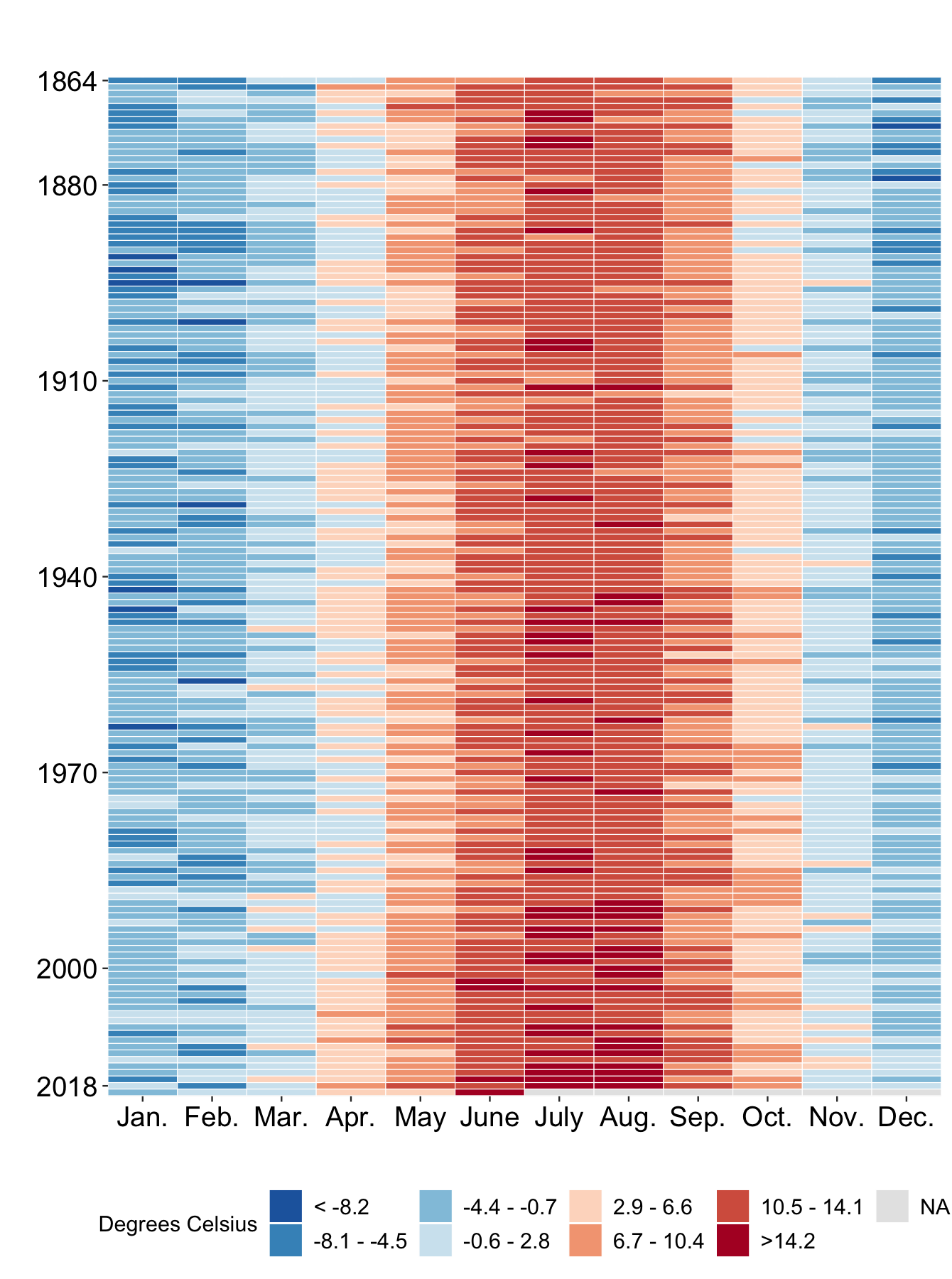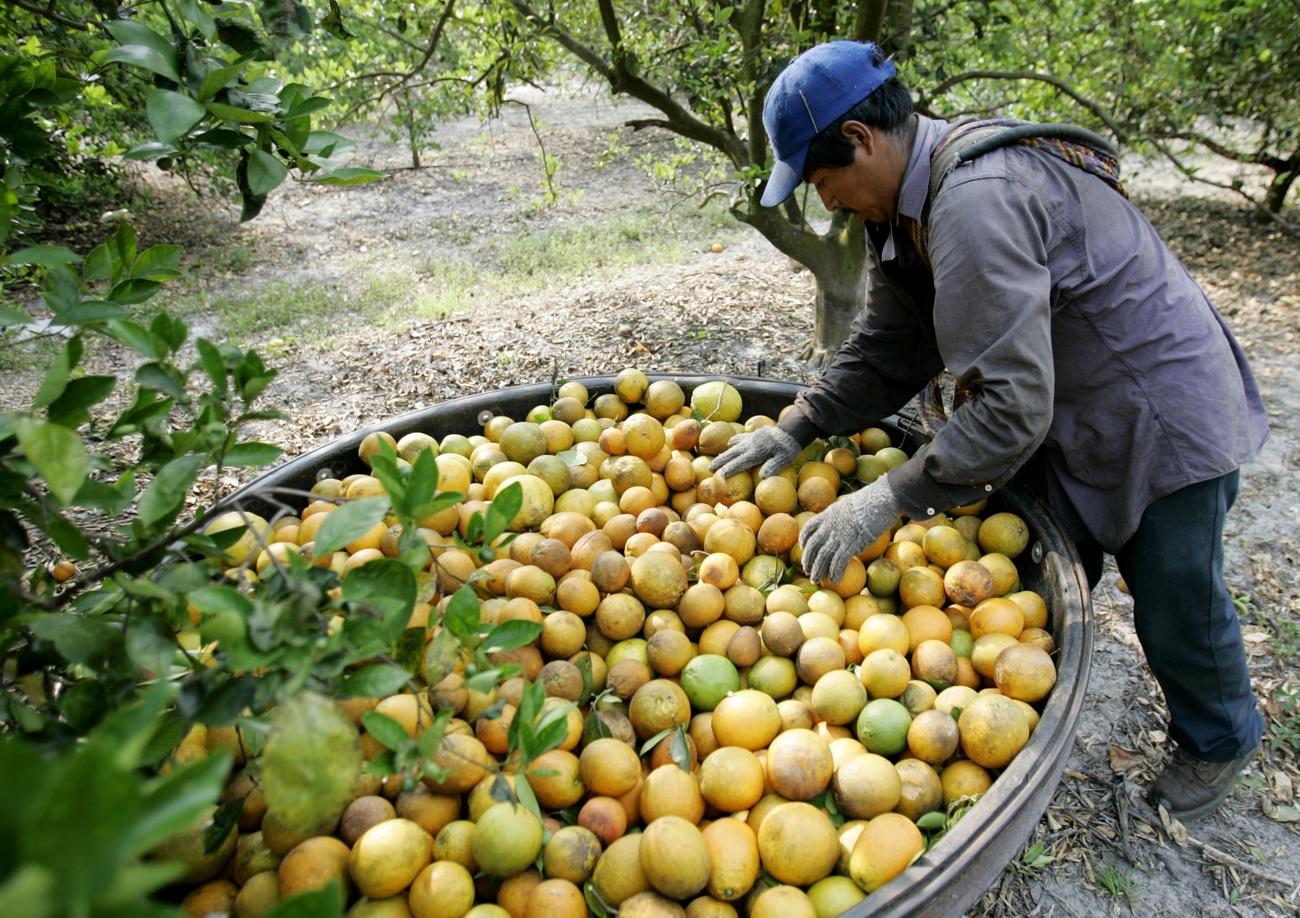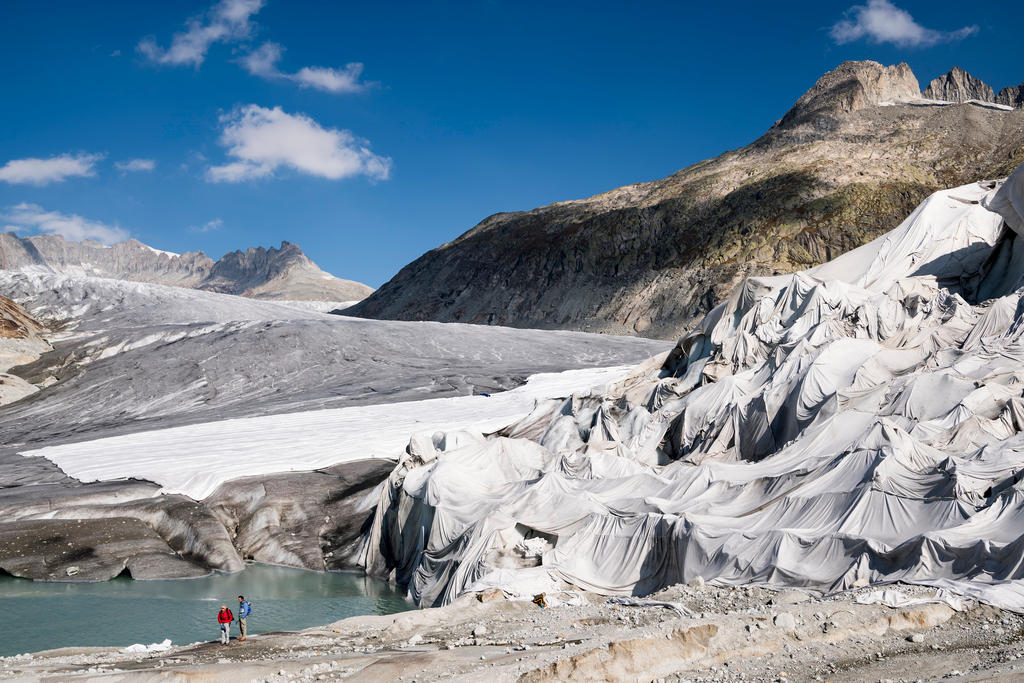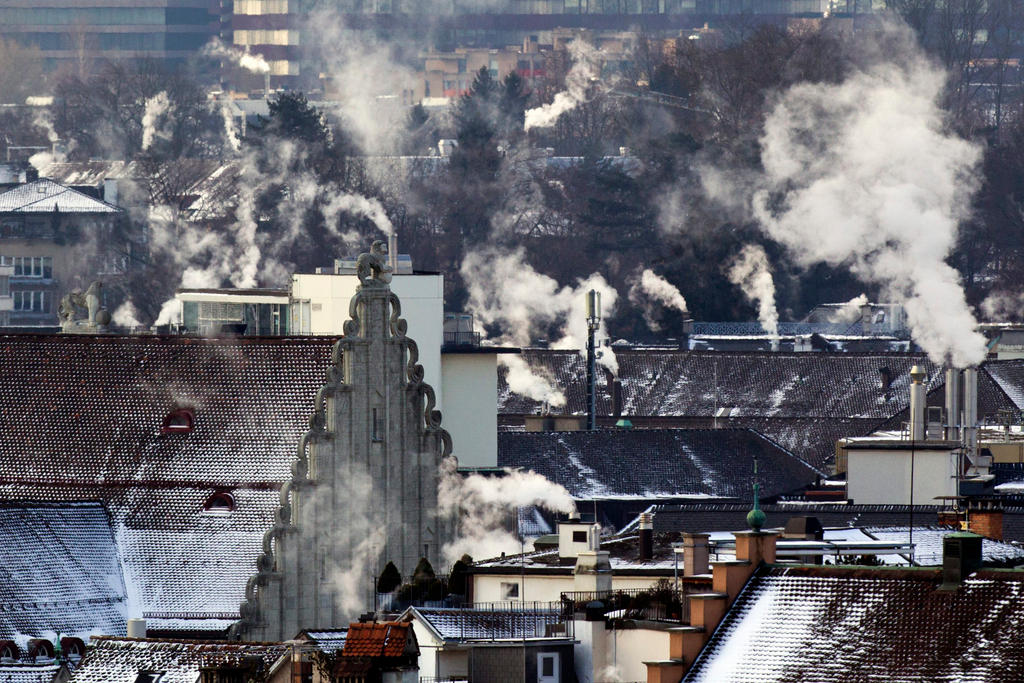How climate change affects Switzerland
On average, Switzerland is about 1.9 degree Celsius hotter now than in 1864. Where and by how much have temperatures most drastically changed?
The summer of 2019 has already seen two heatwaves, and baking summer days are no longer the exception.
Since the beginning of records in 1864 the average temperature in the country has climbed by 1.9°C. And, as elsewhere in the world, where since the 1980s global warming has universally sped up, the past 30 years in Switzerland have seen especially big increases.
Since 1990 every year has been warmer than the average of temperatures for the period 1961-1990. Sunny periods are also 20% more common now than in the 1980s.
Average monthly temperature in Switzerland, 1864-2017

Source : MeteoSwissExternal link.
Since 1970, Switzerland has not seen a month of December where the average temperature dipped below -5°C. While in June, seven of the ten highest average temperatures since records began have occurred since 2002. June 2019, with an average of 15.3°C, was the second hottest June ever.
According to MeteoSwissExternal link, the Federal Office of Meteorology and Climatology, temperatures over the past 150 years have increased more notably in the north of Switzerland than south of the Alps, and they have increased twice as quickly in the country as elsewhere in the world.
Thomas Schlegel, a climatologist with MeteoSwiss, says that this is due to the continental climate in Switzerland: it has no sea around it to slow down the build-up of heat. It’s also due to the fact that Switzerland, due to its latitudinal position, is affected by the phenomenon that areas closer to the North Pole are heating up more than areas towards the equator.
Eight days of heat in Lucerne
How is this climate change showing itself on the ground? In Lucerne, for exampleExternal link, summer heat of over 30°C (86 °Fahrenheit) lasted an average of 3.4 days between 1960 and 1985; this number jumps to eight days for the period 1985-2018.
“The increase in the number of hot days clearly shows the impact of climate change,” says Schlegel. Of course, hot periods existed before the 1980s, and certain months are sometimes cooler than previous averages, but the global trend is one of long-term warming, the climatologist says.
Milder in Davos
Just as the summers are getting hotter, the winters are getting milder. The number of days annually with sub-zero temperatures is decreasing. This trend is particularly visible in Davos, the alpine ski station sitting at 1,560 metres above sea level – here, the number of icy days has dropped by almost 20% over the past 40 years.
The impact of greenhouse gases
Climate experts around the world are now trying to predict how climate change is going to progress over the coming years. Its global impact is likely to depend above all on the amount of greenhouse gasses pumped into the atmosphere in the next decades.
In Switzerland, meanwhile, climate change is likely to lead to dry summers, more extreme downpours and storms, less snowy winters, and more hot days. Average temperatures will continue to climb between now and the middle of the century: predictive scenarios drawn up by MeteoSwiss and the Swiss Federal Institute of Technology Zurich reckon the rise could be between 0.7 and 3.3°C compared with 1981-2010 figures.
Translated from French by Domhnall O’Sullivan

In compliance with the JTI standards
More: SWI swissinfo.ch certified by the Journalism Trust Initiative

















You can find an overview of ongoing debates with our journalists here . Please join us!
If you want to start a conversation about a topic raised in this article or want to report factual errors, email us at english@swissinfo.ch.